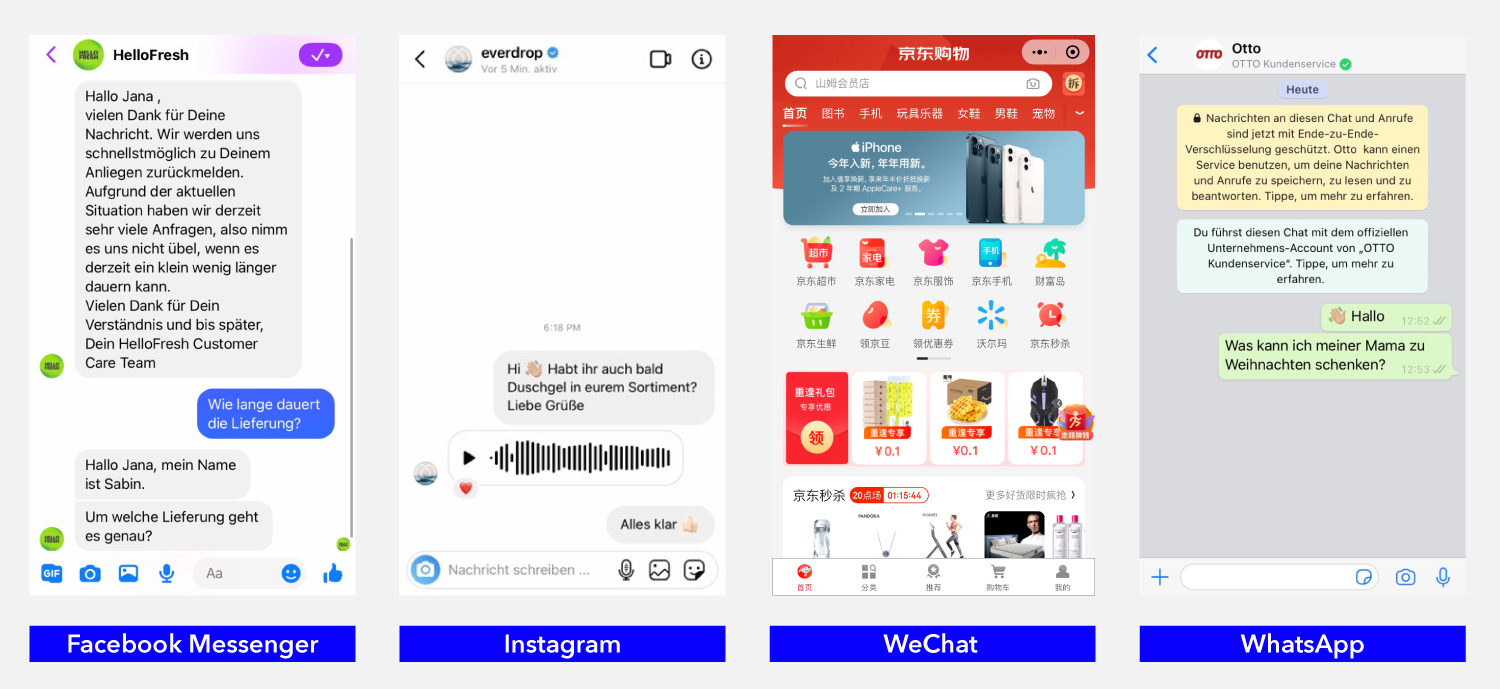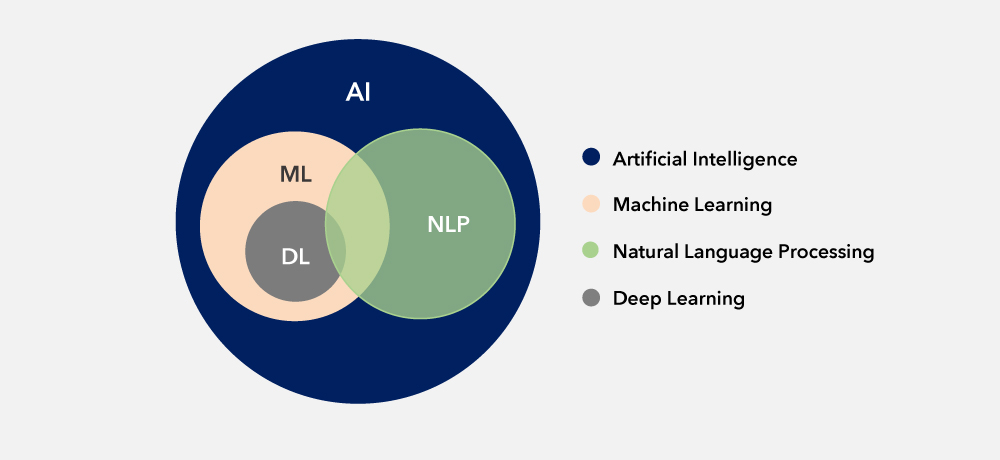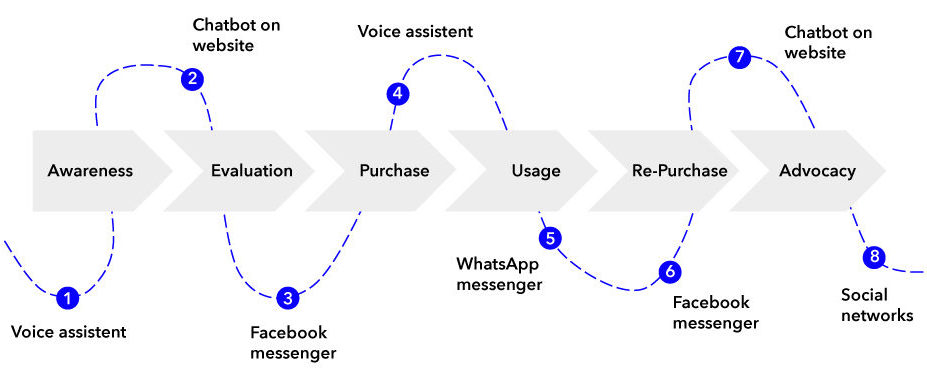RETHINK THE CUSTOMER TO MEET THEIR COMMUNICATION REQUIREMENTS
This article is based on the extensive research results of a bachelor thesis from one of our colleagues on the topic: „Conversational Marketing: Use of Artificial Intelligence to enable interactive customer dialogue“. Consumers have evolved into well-informed decision-makers and so the demands on the communication channels with companies have also increased. They expect that companies can be reached quickly and easily by message at any time and that they receive quick answers. Conversational Marketing offers many ways to meet these needs.
SO WHAT IS CONVERSATIONAL MARKETING ALL ABOUT? WHY IS IT UNIQUE?
Conversational Marketing comprises all interactive, personalized marketing activities of a company that are geared towards real-time conversations. The focus of Conversational Marketing is real-time conversations and thus the establishment of long-term relationships with potential customers.
Real-time conversations should enable the consumer to initiate a dialogue at any time.
Conversations can be initiated, for example, via chat on the website or the mobile phone, or interactions can take place on social network platforms. In Conversational Marketing, it is therefore important to use targeted messages on the website or in apps in order to contact potential customers as well as being able to react in real-time to inquiries or messages from users.
COMMUNICATION CHANNELS THAT ALLOW REAL-TIME CONVERSATIONS
Important communication channels for companies with regard to real-time communication are the company’s website and the associated app. Technically, real-time communication can be implemented using conversation tools such as chatbots or chatboxes. In addition to the integration of chatbots and chatboxes, communication channels can be used for Conversational Marketing, which consumers also use for private communication in everyday life. This includes both messenger services and social networks.

HOW COMPANIES CAN USE AI TO ENABLE REAL-TIME CONVERSATIONS
Chatbots are among the most important, scalable instruments of conversational marketing, because AI-supported chatbots in particular offer great potential for companies. Traditional automation technology allows chatbots to be developed that provide automated answers to questions. However, this type of chatbot is very limited in its functionality and quickly reaches its limits when it comes to more complex questions.

AI can be used to develop a more robust type of chatbot. With AI, chatbots can interpret text and voice inputs and play out context-related responses. The functionality of chatbots and the processing of large (unstructured) amounts of data is based on automated rules and various sub areas of AI, including NLP and ML.
AI-SUPPORTED TOUCHPOINTS ALONG THE CUSTOMER JOURNEY

The example above shows that the tools of Conversational Marketing, especially the integration of a chatbot, can be used effectively in all phases of the customer journey to guarantee automated dialogues in real-time. Chatbots can be trained through Machine Learning, Deep Learning and Natural Language Processing and used for a variety of purposes. Most of the chatbots currently used in practice are in the customer service or chat support, but their functionalities are usually limited. When an automated response is sent, a time delay ensues and then a customer service agent specifically replies to messages.
However, it becomes clear what potential the instruments have if, in the future, advanced, AI-supported chatbots establish themselves as a natural part of the shopping experience and become an integral part of conversational marketing.
Let’s see how our shopping experience will change over the next few years.
COMPANIES SHOULDN’T UNDERESTIMATE THE POTENTIAL OF CONVERSATIONAL MARKETING
Conversational Marketing is a future-oriented marketing discipline, as interactive digital communication between companies and customers will become even more important in the future. Moreover, the instruments provide quickly accessible touchpoints for the user to contact a company. AI can be used to enable simultaneous communication for a large number of users in real-time. Only through the use of AI is it possible to process natural language and generate targeted answers. In addition, the use of Machine and Deep Learning methods enable this instrument to be continuously improved. This means that AI in Conversational Marketing will develop from a nice-to-have technology to a must-have technology for companies. In summary, it is important for companies to find the right balance between intelligent automation of conversations and personal interactive dialogue regarding the use of AI-supported instruments for conversational marketing, both from the point of view of their employees and their customers.
OUR PREDICTION
Based on new technologies and consumer adaptation, chatbots will become an important part of communication between companies and potential customers in the future. The further development of Artificial Intelligence including various learning methods such as ML, DL and NLP will enable the development of advanced chatbots in the future. Companies will increasingly use chatbots that can conduct context-related dialogues based on various learning methods.
Related:
The genesis of the Educated Decision-Maker
Hey Alexa, what’s up? A new Era in Branding Language
